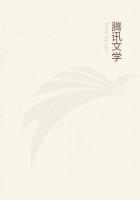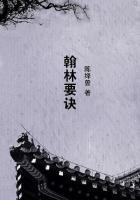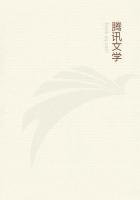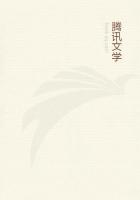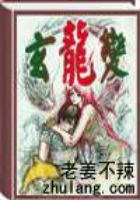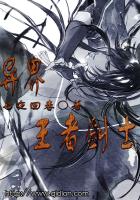English soldiers get drunk when they have the means of doing so, and American soldiers would not get drunk if the means were taken away from them. A little drunkenness goes a long way in a camp, and ten drunkards will give a bad name to a company of a hundred. Let any man travel with twenty men of whom four are tipsy, and on leaving them he will tell you that every man of them was a drunkard.
I have said that these men are brave, and I have no doubt that they are so. How should it be otherwise with men of such a race? But it must be remembered that there are two kinds of courage, one of which is very common and the other very uncommon. Of the latter description of courage it cannot be expected that much should be found among the privates of any army, and perhaps not very many examples among the officers. It is a courage self-sustained, based on a knowledge of the right, and on a life-long calculation that any results coming from adherence to the right will be preferable to any that can be produced by a departure from it. This is the courage which will enable a man to stand his ground, in battle or elsewhere, though broken worlds should fall around him. The other courage, which is mainly an affair of the heart or blood and not of the brain, always requires some outward support. The man who finds himself prominent in danger bears himself gallantly, because the eyes of many will see him; whether as an old man he leads an army, or as a young man goes on a forlorn hope, or as a private carries his officer on his back out of the fire, he is sustained by the love of praise. And the men who are not individually prominent in danger, who stand their ground shoulder to shoulder, bear themselves gallantly also, each trusting in the combined strength of his comrades. When such combined courage has been acquired, that useful courage is engendered which we may rather call confidence, and which of all courage is the most serviceable in the army. At the battle of Bull's Run the army of the North became panic-stricken, and fled.
From this fact many have been led to believe that the American soldiers would not fight well, and that they could not be brought to stand their ground under fire. This I think has been an unfair conclusion. In the first place, the history of the battle of Bull's Run has yet to be written; as yet the history of the flight only has been given to us. As far as I can learn, the Northern soldiers did at first fight well; so well, that the army of the South believed itself to be beaten. But a panic was created--at first, as it seems, among the teamsters and wagons. A cry was raised, and a rush was made by hundreds of drivers with their carts and horses; and then men who had never seen war before, who had not yet had three months' drilling as soldiers, to whom the turmoil of that day must have seemed as though hell were opening upon them, joined themselves to the general clamor and fled to Washington, believing that all was lost. But at the same time the regiments of the enemy were going through the same farce in the other direction! It was a battle between troops who knew nothing of battles; of soldiers who were not yet soldiers. That individual high-minded courage which would have given to each individual recruit the self-sustained power against a panic, which is to be looked for in a general, was not to be looked for in them. Of the other courage of which I have spoken, there was as much as the circumstances of the battle would allow.
On subsequent occasions the men have fought well. We should, Ithink, admit that they have fought very well when we consider how short has been their practice at such work. At Somerset, at Fort Henry, at Fort Donelson, at Corinth, the men behaved with courage, standing well to their arms, though at each place the slaughter among them was great. They have always gone well into fire, and have general]y borne themselves well under fire. I am convinced that we in England can make no greater mistake than to suppose that the Americans as soldiers are deficient in courage.
But now I must come to a matter in which a terrible deficiency has been shown, not by the soldiers, but by those whose duty it has been to provide for the soldiers. It is impossible to speak of the army of the North and to leave untouched that hideous subject of army contracts. And I think myself the more specially bound to allude to it because I feel that the iniquities which have prevailed prove with terrible earnestness the demoralizing power of that dishonesty among men in high places, which is the one great evil of the American States. It is there that the deficiency exists, which must be supplied before the public men of the nation can take a high rank among other public men. There is the gangrene, which must be cut out before the government, as a government, can be great. To make money is the one thing needful, and men have been anxious to meddle with the affairs of government, because there might money be made with the greatest ease. "Make money," the Roman satirist said;"make it honestly if you can, but at any rate make money." That first counsel would be considered futile and altogether vain by those who have lately dealt with the public wants of the American States.
This is bad in a most fatal degree, not mainly because men in high places have been dishonest, or because the government has been badly served by its own paid officers. That men in high places should be dishonest, and that the people should be cheated by their rulers, is very bad. But there is worse than this. The thing becomes so common, and so notorious, that the American world at large is taught to believe that dishonesty is in itself good. "It behoves a man to be smart, sir!" Till the opposite doctrine to that be learned; till men in America--ay, and in Europe, Asia, and Africa--can learn that it specially behoves a man not to be smart, they will have learned little of their duty toward God, and nothing of their duty toward their neighbor.


